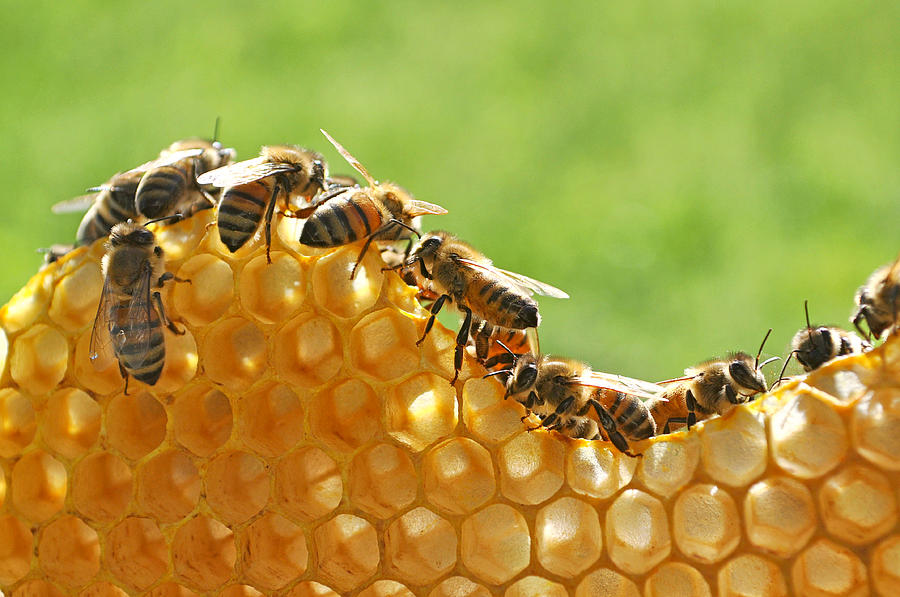Kabelo Masoabi
The government of Lesotho vowed to establish an institution dedicated to setting standards for beekeeping business, this is a significant move aimed at enhancing the apiculture industry in the land.
This announcement was made by the Principal Secretary in the Ministry of Environment and Forestry, Maphakamile Xingwana, during the World Bee Day celebration held recently in Teyateyaneng, Berea.
The event, which brought together beekeepers from across the nation, showcased the diverse range of honey-based products and underscored the vital role of bees in the ecosystem.
Establishing Standards for Apiculture
The proposed institution according to the PS is designed to regulate and improve the apiculture sector in Lesotho.
This initiative, Xingwana said is expected to ensure the adoption of best practices and sustainable methods in beekeeping and honey production.
“The government’s commitment to promoting environmental sustainability and supporting agricultural sectors such as apiculture is unwavering and this the institution would help local beekeepers meet stringent international market requirements, enabling them to compete effectively on a global scale.”
Xingwana encouraged local honey producers to collaborate in enhancing the production of honey products under a unified Lesotho brand.
“Let’s shift our focus from competing to see who can produce the best quality and instead work together to establish a unified brand that represents our businesses in international markets. By doing so, we can address supply shortages and strengthen our position in various markets. Together, we can grow and ensure that no one is left behind,” she stressed.
Importance of Global Standardisation
In a business context, global standardisation involves developing and implementing uniform standards across multiple markets to ensure consistency, quality, and compatibility of products, services, or processes, thus, Xingwana noted that standardising local products is crucial for maintaining uniform brand representation and operational efficiency.
She highlighted that apiculture, or beekeeping, involves managing and nurturing honey bees for honey and beeswax production, playing a significant role in the ecosystem.
Xingwana underscored the advantages of apiculture, particularly its ability to enable uninterrupted honey production throughout the year, regardless of weather conditions.
The PS also pointed out the pivotal role of beekeeping in pollinating extensive agricultural acreage, contributing to the sustainability and biodiversity of the agricultural ecosystem.
“Bees are essential for the sustainability of agriculture as the primary pollinators for a significant portion of crops and plants that make up the global food supply chain,” she explained.
Reactions from the Beekeeping Community
Responding to Xingwana’s remarks, Khothatso Nkholi, a member of the Berea Beekeepers Association, expressed his support for the PS’s emphasis on unity and improving both the quality and quantity of honey products.
He acknowledged the importance of competition, however, stressed the need for collaboration.
“I strongly support the PS’s emphasis on unity and the improvement of both the quality and quantity of our products for the entire country. However, it’s important to acknowledge that competition plays a crucial role in this process, even though it can be a topic of debate. Many local beekeepers have been hesitant to collaborate, but I am committed to changing that,” he said.
Engaging Youth in Beekeeping
This year’s World Bee Day celebration focused on the theme; “Bee engaged with youth,” highlighting the importance of involving young people in the beekeeping industry.
Leseli Phate, another beekeeper, spoke about the substantial potential for young individuals to find employment in beekeeping and contribute to the industry’s growth. He mentioned that beekeeping offers an opportunity for young people to acquire specialised skills and requires a relatively low initial investment, making it accessible for those looking to enter the industry.
Nthati Nyabela, representing the Bacha Entrepreneurship Project (BEP), announced that applications for funding are now open for startup and existing business projects for youth.
She revealed that the project has allocated M1 million this year to fund youth-run projects. BEP, a collaborative effort by the Basotho Enterprise Development Corporation, Revenue Services Lesotho, and Standard Lesotho Bank, aims to address youth unemployment by fostering entrepreneurship.
“We intend to breed a crop of entrepreneurs who can inspire change and prosperity by becoming the creators of jobs and not job seekers,” Nyabela stated.
Showcasing Honey-Based Products
During the World Bee Day celebration, beekeepers from all over Lesotho displayed a wide array of honey-based products including; liquid honey, honey wine, beeswax-based cosmetics, propolis, adhesive products, and beekeeping supplies like beehives and smokers.
The event provided a platform for beekeepers to showcase their products and share knowledge and experience.




